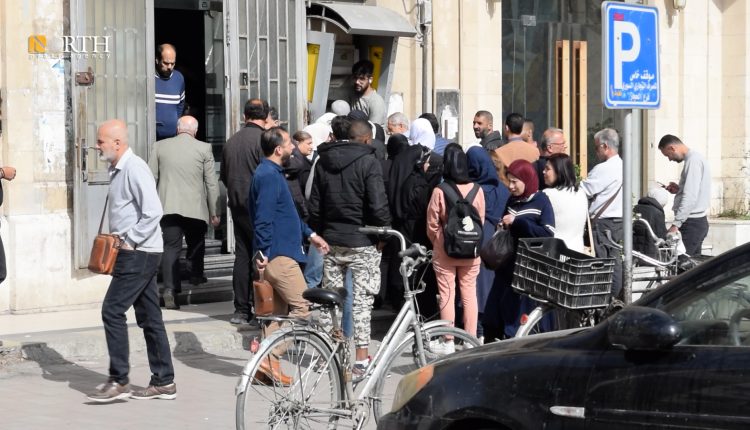By Norman al-Abbas
DAMASCUS, Syria (North Press) – In a move signaling a potential turning point for Syria’s war-torn economy, the Governor of the Central Bank of Syria, Abdul Qader Hasriya, announced that the country has completed its first international banking transaction via the SWIFT system since the outbreak of the war 14 years ago.
The development comes as part of official efforts to reintegrate Syria’s banking system into the global financial network, following the recent lifting of Western sanctions.
Speaking to Reuters last week, Hasriya revealed that a direct commercial transaction was conducted between a Syrian bank and an Italian counterpart. He also noted that transactions involving U.S. banks could begin within weeks.
What is SWIFT?
SWIFT—the Society for Worldwide Interbank Financial Telecommunication—is a global messaging network that facilitates secure and standardized communication between financial institutions. While it does not transfer funds itself, it enables banks to exchange information necessary to complete international financial transactions swiftly and securely.
Although Syria was never officially banned from the SWIFT system, years of U.S. and European sanctions severely restricted Syrian banks’ ability to access and operate through it. As a result, Syria was plunged into de facto financial isolation, making international money transfers through conventional banking channels extremely difficult.
Boost for transfers and investment
Nagham al-Qaddah, an economics student in Damascus, said the reactivation of SWIFT “will make financial transfers easier, especially during this critical phase of reconstruction”
“Syrian banks had been in complete isolation,” she added. “But now, with access to SWIFT, they will benefit from improved facilitation.”
Abdullah Saleh, a business administration student, said that for years, importers had to rely on external offices to transfer funds, driving up costs. Now, SWIFT will simplify those operations.
He emphasized that foreign companies involved in rebuilding efforts will benefit greatly, as SWIFT is a fundamental component of their financial transactions.
Journalist and German language professor Ammar Khreisani also highlighted the domestic benefits, especially in remittances. These remittances had to pass through intermediaries often resulting in financial losses due to currency conversion differences,” he explained. “Now, transfers are safer and more reliable. Funds will move directly from one bank to another,
ensuring they arrive in full value.”
Reopening to global economy
Ali Kanaan, Dean of the Faculty of Economics at the University of Damascus, explained that the sanctions had rendered Syrian banks effectively isolated.
“Following the lifting of sanctions by the U.S. and Europe, it became possible for Syria to rejoin the international SWIFT network,” he said. “Allowing Syrian banks to resume transactions with global institutions. This will lower operational costs for banks.”
He concluded that this development could spark a much-needed economic revival. “The economy will move forward again, toward liberalization, increased production and reintegration into the global market.”
As Syria begins to emerge from years of conflict, international financial connectivity is crucial. The country must secure substantial funds from abroad to finance reconstruction efforts and rebuild a shattered economy, one where, according to the United Nations, 9 in 10 Syrians now live in poverty.

